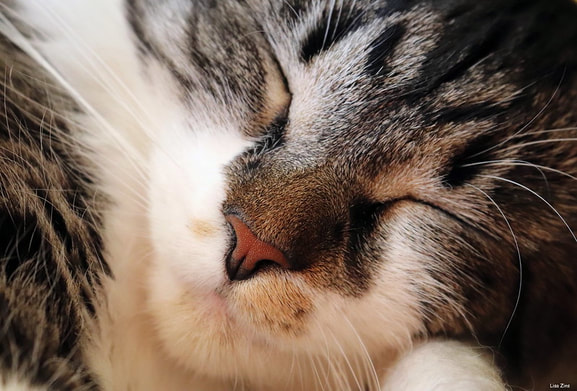Low cost vaccine clinics for dogs and cats of Central Oregon
Snip Central offers low-cost vaccine and preventative care clinics to ensure your pet can live a long, happy, and healthy life. Clinics are scheduled every week, allowing better opportunity to find an appointment that fits into your busy schedule.
Online registration is required for a vaccination appointment.
Online registration is required for a vaccination appointment.
Why Should You Vaccinate Your Pet?
Vaccines trigger the immune system to fight future infections. They stimulate the production of antibodies that are able to destroy the virus or other organism that would otherwise cause disease. Vaccines protect your pets from many dangerous diseases and help them live a happy life.
Top reasons to vaccinate
Top reasons to vaccinate
- Vaccines prevent diseases that can be passed between animals (including humans)
- Vaccines help to avoid expensive treatments for diseases that can be prevented
- Local or state ordinances may require certain vaccinations of pets
Recommended Core Vaccines For All Dogs
|
DAPP
The DAPP vaccine protects against canine distemper, adenovirus, parainfluenza, and parvovirus. We recommend starting your pet on this vaccine when they are 6-8 weeks old and having them boosted every 3-4 weeks until they are 16 weeks old. After that last puppy shot, your dog should be vaccinated for DAPP one year later, and then every 3 years for the remainder of their life. |
Rabies
Because the rabies virus is lethal to animals and humans, the rabies vaccine is required by law for all domesticated dogs. Rabies targets the brain, causing seizures, paralysis, and death. Make sure your pet never goes without protection from this deadly disease. Your puppy will receive their first rabies shot at 12 weeks old, their booster one year later, and then subsequent boosters every 3 years thereafter. |
Recommended Lifestyle Vaccines For Dogs
|
Bordetella
Bordetella (kennel cough) is a contagious, airborne virus of the upper respiratory system. It is typically spread in dog kennels, dog daycare, grooming salons, or parks. We give the Bordetella vaccine intranasally (through the nostrils) during the first puppy visit. The vaccine is then given annually thereafter. |
Leptospirosis
Leptospirosis (frequently referred to as lepto) is transmitted by bacteria found in bodies of water and in damp soil. Wild animals can shed the bacteria in their urine and feces, and your pet can get infected if they come into contact with it. Lepto affects the kidneys and liver and can be deadly if it isn’t treated. Humans are also at risk of acquiring lepto. Primary immunization includes an initial vaccine followed by a booster three weeks later. Dogs should then be vaccinated annually thereafter. |
Recommended Core Vaccines For All Cats
HCP
The HCP vaccine is sometimes referred to as the “feline distemper” vaccine. It protects your cat against herpesvirus, calicivirus, and panleukopenia. Vaccination is essential to your cat's health because these diseases cause many respiratory and gastrointestinal issues. The diseases are also very contagious among cats. Your kitten should get their first FVRCP vaccine at 6-8 weeks old and every 3-4 weeks until they are 16 weeks old. Your cat will then need their next booster a year later, then once every three years thereafter.
The HCP vaccine is sometimes referred to as the “feline distemper” vaccine. It protects your cat against herpesvirus, calicivirus, and panleukopenia. Vaccination is essential to your cat's health because these diseases cause many respiratory and gastrointestinal issues. The diseases are also very contagious among cats. Your kitten should get their first FVRCP vaccine at 6-8 weeks old and every 3-4 weeks until they are 16 weeks old. Your cat will then need their next booster a year later, then once every three years thereafter.
Rabies
Rabies is just as deadly for cats as it is for dogs. Your kitten will receive their first rabies shot at about 12 weeks old, their booster one year later, and then subsequent boosters every 3 years thereafter.
Rabies is just as deadly for cats as it is for dogs. Your kitten will receive their first rabies shot at about 12 weeks old, their booster one year later, and then subsequent boosters every 3 years thereafter.
Recommended Lifestyle Vaccines For Cats
FeLV
FeLV compromises the feline immune system and can lead to various types of cancer, including leukemia. Cats diagnosed with leukemia have an average lifespan of 2 years beyond diagnosis. Your cat should receive their first FeLV vaccine at around 9 weeks of age, followed by a booster in one month. Annual revaccination is recommended for outdoor cats after that.
FeLV compromises the feline immune system and can lead to various types of cancer, including leukemia. Cats diagnosed with leukemia have an average lifespan of 2 years beyond diagnosis. Your cat should receive their first FeLV vaccine at around 9 weeks of age, followed by a booster in one month. Annual revaccination is recommended for outdoor cats after that.



